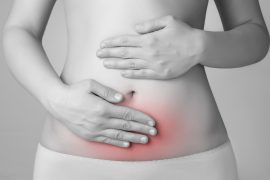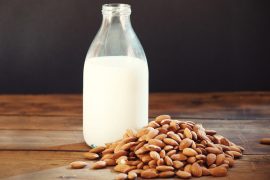Hi friends,
I’m so sorry I haven’t been putting out much new content this week on the blog, but it’s been a crazy busy week for me, all good things though, but it’s meant that I haven’t had much time to actually sit down to write for all of you.
However, today, I’m dedicating to getting at least one article out, which will be this one on my favourite supplements that I’m currently lusting & loving for my body and, in particular, gut-health. It’s so requested, so I thought I’d actually give you all a collective overview of what I’m taking for my health, currently.
I love supplements, and I believe they’re a vital part of my health-regime in overcoming my gut-health issues. Although supplements can never outdo a bad diet, they are incredibly powerful if you incorporate them alongside a tailored, balanced & healthy diet that’s suitable for you and your internal gut-health.
Let’s get right into it..
Calcium D-Glucarate 500mg:
Calcium D-Glucarate is the calcium form of D-glucaric acid, a substance produced naturally in small amounts in the body. Glucaric acid is also found in many fruits and vegetables. Scientific studies have found that Calcium D-Glucarate can facilitate complete detoxification and elimination of certain metabolic waste products and environmental compounds from the body. By supporting the body’s natural cleansing mechanisms, Calcium D-Glucarate may help to maintain normal cellular function and promote liver, prostate, and breast health.
I take this because I have an enormous amount of excess oestrogen in my gut (shown through testing). Calcium D-Glucarate (3 x day) helps to metabolise this oestrogen and discard it from my body so that normal hormonal-levels can eventually be restored in my gut.
Digestive Enzymes:
All enzymes are catalysts that enable molecules to be changed from one form into another. The digestive enzymes definition is “enzymes that are used in the digestive system.” These enzymes help break down large macromolecules found in the foods we eat into smaller molecules that our guts are capable of absorbing, therefore supporting gut health and making sure the nutrients are delivered to the body.
Digestive enzymes are split into three classes: proteolytic enzymes that are needed to digest protein, lipases needed to digest fat and amylases needed to digest carbohydrates.
How do digestive enzymes work? Digestion is a complex process that first begins when you chew food, which releases enzymes in your saliva. Most of the work happens thanks to gastrointestinal fluids that contain digestive enzymes, which act on certain nutrients (fats, carbs or proteins). We make specific digestive enzymes to help with absorption of different types of foods we eat. In other words, we make carbohydrate-specific, protein-specific and fat-specific enzymes.
Digestive enzymes aren’t just beneficial — they’re essential. They turn complex foods into smaller compounds, including amino acids, fatty acids, cholesterol & simple sugars. Enzymes are synthesised and secreted in different parts of your digestive tract, including your mouth, stomach and pancreas.
I take enzymes 3 x daily. Morning, lunch & dinner after each meal.
Probiotics:
Probiotics are bacteria that line your digestive tract and support your body’s ability to absorb nutrients and fight infection. Your body contains about the same number of gut bacteria molecules as it does cells for the rest of your body, so it’s no wonder your gut is so important to your health.
Your skin and digestive system alone host about 2,000 different types of bacteria. Probiotics benefits have been proven effective in supporting immune function, reducing inflammation, promoting healthy digestion, as well as maintaining beautiful skin, especially when combined with prebiotics.
Your good gut bacteria is also responsible for:
- Producing vitamin B12, butyrate and vitamin K2
- Crowding out bad microbes
- Creating enzymes that destroy harmful bacteria
- Supporting immune function
Probiotics are in our systems from the moments we are born. When a newborn is in the birth canal of the mother during delivery, the baby is exposed to the bacteria of his or her mother for the first time. This event starts a chain of events inside the baby’s gastrointestinal tract, and the infant’s GI tract starts to produce good bacteria.
Nearly everyone can benefit from probiotic supplements, but they can be especially beneficial for those who aren’t getting at least a few servings of fermented foods in their diet. Additionally, those with an autoimmune disease, digestive issues or other health problems may also want to consider investing in a high-quality probiotic supplement.
Probiotic dosage is measured in “colony forming units,” or CFUs. Guidance lines says to aim for at least 5–10 billion CFUs per day for children and 10–20 billion CFUs each day for adults. However, the recommended dosage may vary based on individual health concerns, so discuss with your health professional for personalised guidance as needed.
I take a good quality probiotic supplement every night before bed.
Zinc:
Zinc, which is actually a type of metal, is an essential trace element. Zinc is needed in small amounts every day in order to maintain health and perform important functions each day. Zinc benefits the body in many ways: helps with hormone production, growth and repairmen; improves immunity and facilitates digestion.
Zinc benefits also include its ability to act as an anti-inflammatory agent, therefore zinc may have significant therapeutic benefits for several common, chronic diseases.
Zinc is actually present within all bodily tissue and needed for healthy cell division. It acts like an antioxidant within the body, fighting free-radical damage and slow the ageing process. Zinc also has a big impact on hormonal balance, so for this reason, even a small zinc deficiency can result in hormonal complications, especially for women.
Without enough zinc present in your diet, it’s possible to experience negative reactions like frequently getting sick, feeling like you’re always tired and run down, poor concentration, stunted growth, and the inability to heal wounds.
You can find zinc through many foods, but you can also supplement with a good quality zinc-supplement to help you reach your advised zinc-levels everyday.
Gastrointestinal Lining Support:
The primary purpose of the gastrointestinal tract is to break food down into nutrients, which can be absorbed into the body to provide energy. Firstly, food must be ingested into the mouth to be mechanically processed and moistened. Secondly, digestion occurs mainly in the stomach and small intestine where proteins, fats and carbohydrates are chemically broken down into their basic building blocks. Smaller molecules are then absorbed across the epithelium of the small intestine and subsequently enter the circulation. The large intestine plays a key role in reabsorbing excess water.
In the case of gastrointestinal disease or disorders, these functions of the gastrointestinal tract are not achieved successfully. Gastrointestinal problems are very common and most people will have experienced some of the above symptoms several times throughout their lives.
Therefore a healthy gastrointestinal lining is essential for proper digestion, immune function, and overall health.
I take a GI-Support Supplement 2 x daily.
Collagen:
Collagen is the most abundant protein in our bodies, especially type 1 collagen. It’s found in muscles, bones, skin, blood vessels, digestive system and tendons. Collagen benefits are so striking because this protein is what helps give our skin strength and elasticity, along with replacing dead skin cells. When it comes to our joints and tendons, in simplest terms, it’s the “glue” that helps hold the body together.
Collagen is often referred to as a “complex protein,” which is not surprising considering it contains 19 different amino acids. These include a mix of both nonessential (also called conditional) and essential types. Collagen is a particularly great way to get more conditional amino acids, like arginine, glutamine, glycine and proline.
Collagen is composed of three chains. Proline and glycine are the primary types of amino acids found in collagen chains. Both proline and glycine are two important amino acids that aren’t abundant in animal meats, which is where most people eating a “Western diet” get the majority of their protein from. This means that people are lacking these amino acids in their diets — since they regularly avoid eating some of the natural sources.
Nonessential amino acids are actually pretty important. Under normal circumstances they’re produced by your body. However, when you’re sick, under a lot of physical or emotional stress, or otherwise unhealthy, your body may not be able to produce enough of these amino acids on its own. The body then needs help from outside sources, mainly your diet or supplements, to get its fill.
The biggest digestive benefit of consuming more collagen is that it helps form connective tissue and therefore “seals and heals” the protective lining of the gastrointestinal tract. Poor gut health — including changes in the gut microbiome and permeability in the gut lining — allows particles to pass into the bloodstream where they can kick off an inflammatory cascade & lead to gut-problems.
Adaptogens:
Adaptogens enclose a wide variety of different natural medicines from all corners of the globe that have a few things in common: They are safe and they have a balancing effect on something called the hypothalamic-pituitary-endocrine axis. This is the delicate balance between your brain and hormone system.
Your brain-adrenal axis, brain-thyroid and brain-gonadal axis (I know, huge words!) are needed to work in perfect harmony for a healthy mood, metabolism, energy, immune system, and sex drive. When your HP axis is imbalanced it leads to hormone problems like adrenal fatigue, thyroid problems, and low to no libido at all. All the things that aren’t fun..
This is where the power of adaptogens comes in handy. While they all have a hormone-balancing quality to them, they all have their own unique strengths as well. The inhabitants of the adaptogen world work brilliantly by themselves or in synergy with other complementary adaptogens. You can mix these into your morning coffee, make a caffeine-free tonic, or blend them into your daily smoothie – whatever takes your fancy.
Adaptogens I use:
Mucuna Pruriens: This bean extract is packed with L-DOPA, which is the precursor to the neurotransmitter dopamine. Great to lower stress, but also to support your ‘happy hormones’.
Ashwagandha: Since it has the ability to regulate cortisol, your body’s stress hormone, this is a powerful tool to have on hand.
Chaga: This superfood mushroom is loaded with antioxidants that help fight free radicals to keep skin youthful.
Maca: absolutely amazing for an instant energy-boost and very accessible. Fits great into a smoothie.
He Shou Wu: This herb helps to increase sex drive in those with low libidos.
Holy Basil (Tulsi): Start incorporating this into your wellness routine if you struggle with brain fog, as it works to increase cognitive function. One reason holy basil may be effective in improving stress response is the presence of three phytochemical compounds. The first two, ocimumosides A and B, have been identified as anti-stress compounds and may lower blood corticosterone (another stress hormone) and create positive alterations in the neurotransmitter system of the brain. The third is also able to lower stress-parameters.
Lion’s Mane: The nerve growth factors (NGFs) found in this mushroom can help regenerate and protect brain tissue.
Licorice Root: Licorice root can increase energy and endurance, plus help boost the immune system. It may affect blood pressure and potassium levels, so traditional licorice root is typically recommended in cycles of 12 weeks, although this isn’t the case when taking DGL licorice, which is considered safe for long-term use.
Be careful taking adaptogens, however, as they are very potent and strong, although they don’t look of much in their powder-form, they pack a punch!





This is fantastic! I study organic biochemistry and I love your accessible approach to educating those around you as you learn about your body. Lots of love to you xx